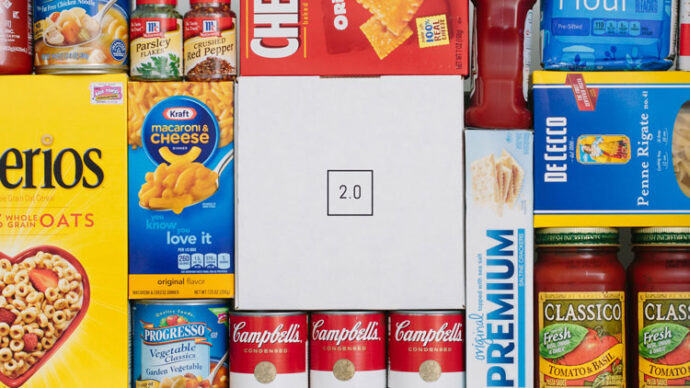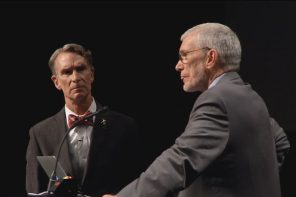In The Life Changing Magic of Tidying Up, the Japanese cleaning consultant Marie Kondo offers simple advice: go through all of your possessions, one by one, and ask yourself, “Does this bring me joy?” If the answer is “no,” then get rid of it. The advice has certainly resonated—the book has sold more than two million copies, and it spent months on the New York Times bestseller list. By my friends’ telling, it’s practically required reading for anyone trying to live in a cramped New York apartment.
There’s something spiritually satisfying about the act of pruning. Who hasn’t dreamed of simplifying their life, committing to minimalism, and limiting their possessions to the bare necessities? Many religious and philosophical traditions contain strains of such asceticism. From Epictetus to the Buddha, from Christian monasticism to Thoreau, there’s a long tradition of trying to make do with what you already have, and maybe learning to live with less.
Silicon Valley, with a futurist and libertarian-leaning ideology all its own, is no exception. This new brand of technologically-enhanced asceticism, however, is based less on minimalism than it is on outsourcing, by building a simple life on the backs of sweatshop laborers and the unregulated sharing economy.
Although he lives in Los Angeles, no one exemplifies the new Silicon Valley asceticism better than Rob Rhinehart, the software engineer who developed Soylent, a “nutritionally complete” liquid meal replacement with a taste that media outlets describe as anything between “flavorless custard” to “like someone wrung out a dishtowel into a glass.” The central ideas behind Soylent are efficiency and optimization. On “The Colbert Report,” Rhinehart stiffly discussed nutritional biochemistry and explained how Soylent “fit[s] the criteria that people desire in their staple foods.”
This attitude isn’t too far from the kind of decluttering ethic that Marie Kondo would recognize. To explain why he cut cooking from his life, Rhinehart told The Atlantic, “I would rather enjoy things because I want to, not because I have to.” And he reports seeing the most interest from young, educated males who are “busy or passionate about something.” Cooking is labor, he argues, and wasted time. If it doesn’t give you joy, why not get rid of it to make room for what matters to you?
Last week, Rhinehart published a post on his personal blog that extended this logic to his consumption of electricity. It echoed Walden’s early chapters on economy, where Thoreau detailed the materials and expenses of his life in the cabin. (The materials for building the cabin itself cost $20.12½, excluding the “timber, stones, and sand,” which he “claimed by squatter’s right.” He planted mostly potatoes and beans, supplemented with $1.74½ worth of rice.) Rhinehart does similar accounting: $150 for a 100W solar panel; $65 for lead acid battery that holds 12V; etcetera. Everything considered, Rhinehart claims to have spent $1,450 on a rig that leaves him completely self-sufficient.
But Rhinehart isn’t self-sufficient in the same way Thoreau was. Thoreau planted his own food, made his own clothes, and built his own house. Rhinehart outsources. He doesn’t have a car because he takes Uber. He doesn’t go grocery shopping because he buys his “staple food online like a civilized person.” He doesn’t go to the liquor store, because a company called Saucey delivers him wine. Opting out of owning a wasteful washing machine, Rhinehart has his clothing “custom made in China for prices you would not believe” and shipped to him regularly. After a few wears, he donates his “used garments.”
This is an astonishing admission, in part because it clearly highlights the inconsistency in Rhinehart’s brand of asceticism. Surely he can’t imagine that donating his clothes and buying new ones is more sustainable than keeping and washing them himself. Even more, he describes grocery shopping as a “multisensory living nightmare,” and explains that he doesn’t use grocery shopping services because he “cannot in good conscience force a fellow soul through this gauntlet.” If Rhinehart thinks paying others to grocery shop for him is unethical, I wonder how he imagines those clothes in China are made so cheaply, and whether an industrial factory qualifies as a gauntlet.
If Rhinehart washed his clothes himself, however, he would need a washing machine, which takes energy, and he couldn’t say he lived on a battery anymore. A commenter on Rhinehart’s post aptly called this brand of asceticism “consumption laundering”; because Rinehart doesn’t do the consumption himself, it doesn’t count. It doesn’t use up his solar-powered battery, so it’s not real. The feeling of minimalism is bought by offloading consumption onto others.
Rhinehart doesn’t have a car because someone else drives him. He doesn’t go shopping because China ships him clothes and an app brings him wine. He doesn’t buy groceries because UPS delivers his Soylent. All were necessary steps for him to ditch his electricity-sucking appliances so that he could live off the power generated by a solar cell, but what does that say other than that he’s in the privileged position of making other people use his energy for him?
Rhinehart certainly means well. Perhaps it’s more efficient to have a few people with cars do the driving, a few people with washing machines do the washing, and a few people with kitchens do the cooking (with Soylent for the rest). It’s hard to feel good about it, though, when that efficiency comes at the expense of those we outsource to, be it your Uber driver or a Chinese sweatshop worker. Avi Asher-Shapiro at Jacobin makes a compelling case against this kind of “sharing” economy, calling it “a scheme to shift risk from companies to workers, discourage labor organizing, and ensure that capitalists can reap huge profits with low fixed costs.”
Few can afford a cabin in the woods; far fewer can afford Rhinehart’s 21st century Silicon Valley upgrade. Maybe we will one day live in a techno-ascetic utopia, where parking lots become parks and power plants become museums because we all use solar cells and drink Soylent and have our clothes shipped to us (efficiently) by drone.
But who will exist on the fringes? Rhinehart’s vision would have us invert the “haves” and the “have-nots,” letting the rich live lightly by offloading the messy business of consuming and owning to the poor. The solution to our problems isn’t to wildly deregulate and make transient consumption so cheap that the rich are no longer burdened by ownership. I don’t want to live the illusion of a simple life because I’m renting the frills.





